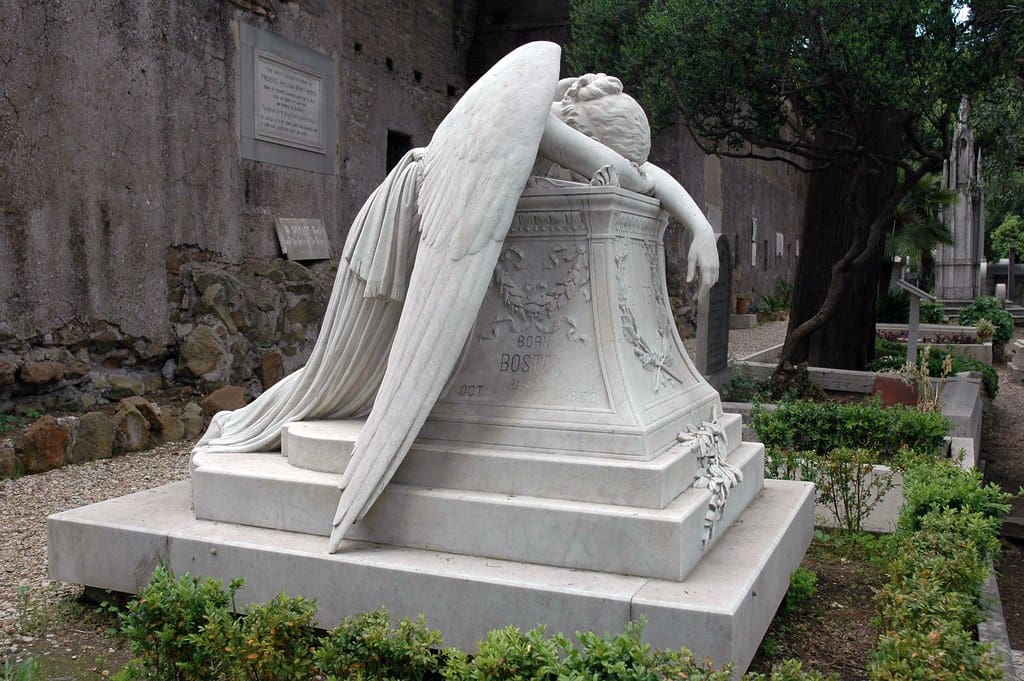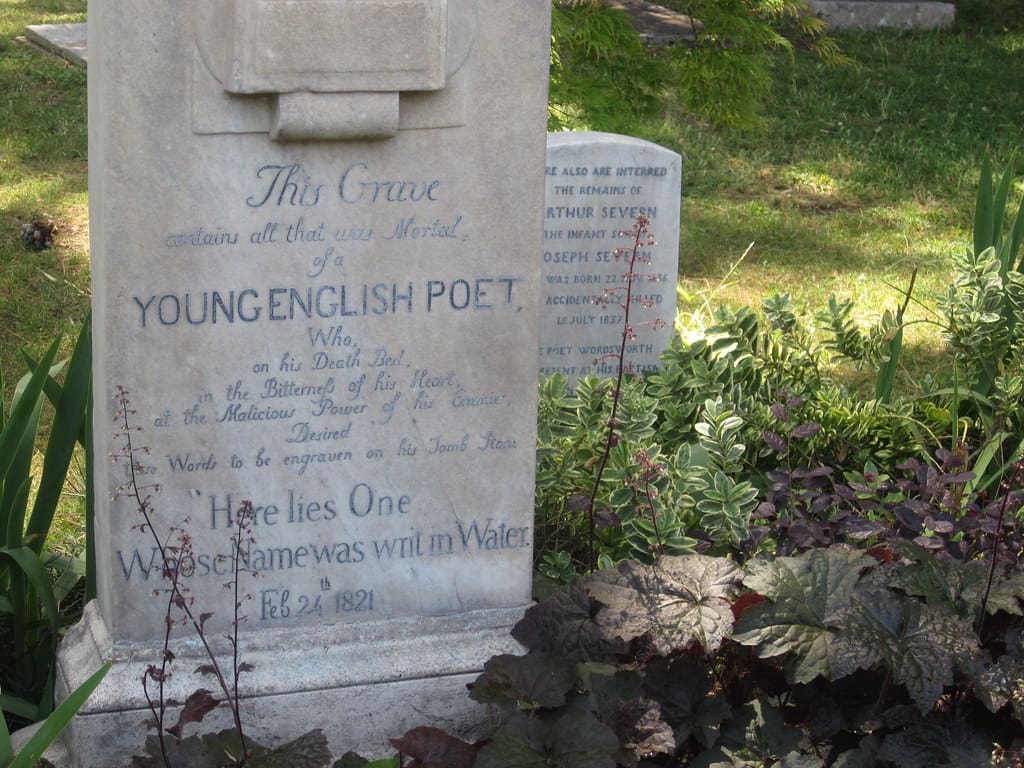There is a kind of silence that, after millennia of idle slavery, screams and struggles so that its voice can resonate in the infinite paths of the spirit. Each step on the loose earth makes its darkest hollows resound and seems to release fairies, undines, goblins, and gnomes so that the lone traveler drags behind him a joyous crowd that sings, rattles, and shakes the centuries-old branches of the old oaks.
In placing mortal remains on the earth, man wants to give a gift to Geb, the Egyptian god who conjoins with the sky goddess Nuit, to make the bond between what is above and what lies below indissoluble. Crosses, Latin, Celtic, and Orthodox, soar and want to raise their heads above the verdant treetops. But where do they derive their nourishment? From that very soil where the seed of life has sunk a thousand times and more and on which the lonely visitor treads his lost steps.

One listens to the stillness of the night among the narrow alleys that weave the net separating the place of death from the boundless bazaar where the fumes of intoxication dance like giant fatuous fires. Yet it seems so close to the multitude of existences that, only outwardly, bends in very long weeping, like William Story‘s angel of grief.
“That which is above is like that which is below, and that which is below is like that which is above, to realize the miracle of the one thing,” wrote Hermes Trismegistus in the Emerald Tablet, perhaps also from time to time, lost in his visions among the decomposed mounds of an old cemetery.
Exalt yourselves in peace, you who seem to want to give only the melancholy appearance of despondency here! Exalt yourselves in peace!
Historical and Artistic Considerations on the Protestant Cemetery in Rome
Nestled in the bustling city of Rome is the Protestant Cemetery, rich in history and tranquility. Located in the bustling Testaccio neighborhood, this cemetery is the final resting place for many important people from different walks of life.
Founded in the early 18th century, the protestant cemetery has become a cultural landmark, attracting visitors from all over the world. Its serene and picturesque surroundings offer solace to both locals and tourists seeking a quiet escape from the hustle and bustle of the city.
The cemetery is the eternal home of a wide range of individuals. Poets, artists, writers, and scholars have found peace in these sacred grounds. Here rest such figures as John Keats, Percy Bysshe Shelley, and Antonio Gramsci, whose legacy continues to inspire generations. Gramsci’s grave at the protestant cemetery inspired Pier Paolo Pasolini in 1957 to publish the poetic collection “The Ashes of Gramsci” (you can find some English translations in the books “The Selected Poetry of Pier Paolo Pasolini” and “Poems“).

As you wander the cemetery paths, you will encounter beautifully decorated headstones and intricate sculptures, each telling a unique story. The peaceful atmosphere invites contemplation and reflection, allowing visitors to connect with the lives and contributions of those buried here.
In addition, the protestant cemetery testifies to the city’s rich cultural tapestry, honoring individuals of diverse religious backgrounds. It serves as a reminder of the inclusiveness and diversity that Rome embraces.
A visit to Rome’s protestant cemetery is not simply a trip to a burial ground but a journey through history and art. It offers a glimpse into the lives of exceptional individuals who have left an indelible mark on the world. Whether you seek solitude, inspiration, or a moment of reflection, this sacred place offers a unique experience not to be missed.

